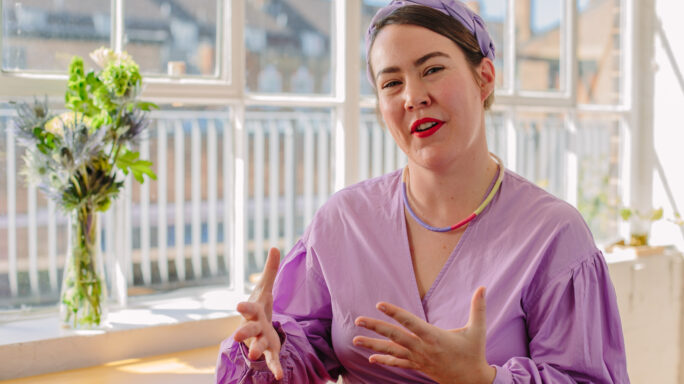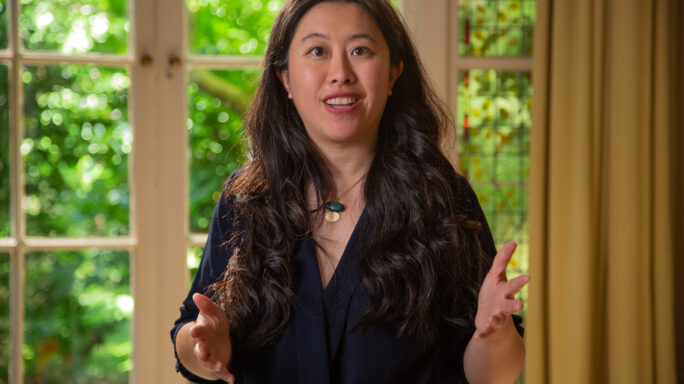Season 2: Unlocking productivity
Improvisation: A new and complementary approach to more productive work

Every day we improvise whether we realise it or not. We have to adjust and adapt to a stream of changing and unpredictable circumstances that we do not, ourselves, control. We do this instinctively, without even realising. It is an ability that we have, but don’t know we have. This means that when we get stuck, or face new difficulties, we don’t take advantage of this skill or develop it any further.
We stick to traditional ways of problem-solving and end up working ever harder in the belief that will somehow, miraculously, fix things. But it is far more effective to learn to understand, trust, and develop your natural ability to improvise not as a substitute for other abilities, but as a complement, which expands your capacity to be productive.
Improvise for better results
Underlying improvisation there is a simple method you can learn. Improvising well is not a special talent, nor is it necessarily chaotic or unruly. The method gives you some simple things to do instead of simply pushing harder, that will help you feel less worried and stressed, whilst getting better results.
For over twenty years I have been working with the tools and ideas that an actor might use and applying them to the world of business. For example, seeing a mistake as a “mis-take” and regarding it as another take, or attempt, in an iterative process that strives to get better. Or stepping in a scene before having an idea and seeing what happens.
So if you want new ideas, don’t sit at your desk. Walk the factory floor or visit the shop. Phone your own customer line and see how you get treated. Get your hands on the product (or your competitors’) and play around with it, so that you really get to know it. I have seen how these practices are applicable for people in any industry or job–from assistants to CEOs–to understand and deal with the unplanned and the unexpected.
It is not about thinking fast, but about a change of attitude. Instead of rushing in, you learn to pause, and respond accordingly, which makes you far more agile in your everyday work.
Change is a constant and never goes away. So the key is to get better at working with it, rather than struggling against it. However productive you are, you can become more productive still if you develop your ability to improvise.
Be ready for anything
Whatever sector or industry you are in, whatever your level or position, by adopting this method you can learn to be ready for just about anything. It will make you more adaptable and agile, enable you to think on your feet, to embrace the unknown instead of fearing it and get better results in real-time. These skills also help you to embrace the ebb and flow of leadership – to step forward, or back, as circumstances require.
Using the ideas that improvisation rests on means that ideas can come from anywhere. The cross-stimulation of people can prompt a thought or an idea in you or someone else that you can take and use. Every suggestion sparks creativity and productivity that happens as a result of listening and working collaboratively. This doesn’t require working harder or making more effort – it means making a different kind of effort.
Six words to help you improvise
The practice of improvisation can be summed up in three main ideas (and six words!) to help you at work: Notice More. Let Go. Use Everything.
These simple practices are things you can do, and keep doing, whatever comes at you. They are easy to understand, simple to learn and useful forever.
To Notice More means looking, listening, and leaning into your senses. It means opening up to things on the edge – to people, or ideas, or senses you normally ignore. This allows you to see or create new opportunities. Can you notice the tone and mood of what someone says, not just the content. That might tell you more about what is really going on. Are you listening to the people who don’t normally say much, are you looking for ideas outside your own market?
Letting Go is about loosening the hold of past assumptions or future expectations. It doesn’t mean forgetting everything you know, but it does mean questioning or challenging assumptions. You might need to let go of your idea of someone (“Bill is just a numbers man”) or even yourself. Letting go of traditional processes or ways of working can free your mind up to look at things differently.
To Use Everything means constantly seeking to work with things that are right in front of you, whether it’s a past mistake, an error, or something you have only just noticed. We often try to be clever or original in our work, but that can get in the way. Using whatever other people have to offer–their interpretations, experiences, and perspectives–can spark ideas you wouldn’t otherwise have. It is also a powerful way to reframe difficulty or misfortune. Whatever happens, you simply ask yourself what there is here you can use, “letting go” of judgement in the process, which is both constructive and liberating.
These three ideas all link together. Noticing more gives you something else to use. Letting go of something frees you up to notice more. And by using everything available to you, you let go of limiting assumptions and reframe things constructively.
That all comes together, in the phrase “everything’s an offer” which is a way of weaving all the practices into one, giving you one simple thing to remember and return to, whenever you need it.
Not sure what to do next? Improvise
Improvisation takes a novel approach to working more productively. It recognises that what we might call mistakes, are also opportunities. This method shows you don’t always have to plan more, work harder, or be in control to shape, influence, and create positive change.
If you’re not sure what to do next, why not improvise?




